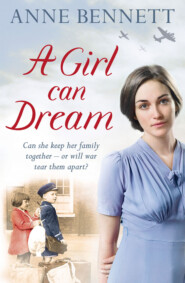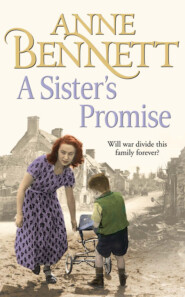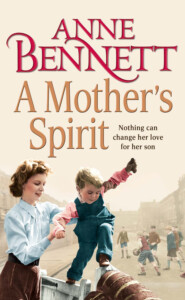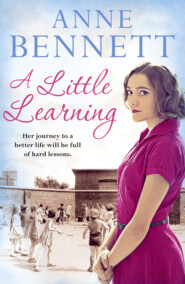По всем вопросам обращайтесь на: info@litportal.ru
(©) 2003-2024.
✖
Another Man’s Child
Настройки чтения
Размер шрифта
Высота строк
Поля
Norah knew that too, but both girls went on with the pretence. ‘Have you sold the calves, Daddy?’
Dan took a swig of Guinness from the pint glass he held before he said, ‘Might have. Man said he’d tell me this afternoon when his brother has a chance to look them over. So you must make your own way home. Tell your mother.’
‘Yes, Daddy,’ the girls chorused, though they knew their mother wouldn’t be the least bit surprised.
They passed the Hireling Stall again on their way out of town and Celia saw the blond-haired man talking to Dinny Fitzgerald whose farm abutted theirs in many places. ‘Looks like Dinny’s hiring that chap,’ Norah remarked.
‘Well Daddy said he would have to hire someone after his son upped and went to America,’ Celia said and added, ‘Huh, seems all the Irish farms are emptying of young men going to that brave New World.’
‘Yes and I might want to nab one of those men for myself in due course,’ Norah said. ‘That’s why I have to practise on poor Joseph.’ And her tinkling laugh rang out at the aghast look on Celia’s face.
It was some time later when Dan Mulligan came home, very loud and good-humoured, which Peggy said was the Guinness effect. He brought all the news from the town though, including the fact that Dinny Fitzgerald had indeed taken on a new farm hand.
‘Must be no sign of his son retuning then,’ remarked Peggy. ‘America seems a terrible lure to the young people.’
‘Aye,’ Dan said. ‘But sure it’s hard for a man when he has only the one son who will inherit the farm and who has so little interest in it he is away to pastures new, and so Dinny has to have strangers in to work it with him.’
‘Maybe the lad didn’t take to the life,’ Norah said. ‘You know, maybe he doesn’t want to be a farmer.’
‘Take to the life,’ Dan said with scorn. ‘What’s whether he likes it or not got to do with anything? People can’t always do as they please and in this case there is no one else and it’s his birthright. Is he not going to come back and take it on board after Dinny’s day, let the farm fall to strangers and after it being in the family generations? Tell you, I’d find that hard to take.’
‘Well not every man has the rake of sons you have,’ Peggy said. ‘So if our Tom here didn’t want it, then Dermot might or even wee Sammy, for all he’s only seven now. Or Jim might come back from America and take it on if there was no one else. Mulligans will farm here for some time to come I think.’
Celia, listening as she washed the dishes in the scullery, knew her mother was right. She knew too most farmers wanted more than one son but the eldest inherited everything and the others had to make their own way. That’s what Jim had said when he left for America’s shores. It had been five years ago when he had decided. He had been twenty-three then, two years younger than Tom and, knowing his future was in his own hands, he had written to Aunt Maria who had sailed away to New York many years before with her new American husband and was quite a wealthy woman now, but a childless one. She had been delighted to hear from Jim, and agreed to not only sponsor him but also pay his fare and said she would do the same for all who wanted to follow their brother.
Peggy hadn’t liked to hear that bit and she watched the restless Norah growing up rather anxiously and was glad and relieved when she settled with Joseph O’Leary, but not as settled as she might be, because just a few months before she had claimed it wasn’t serious between them. There was no understanding, Norah had said and it was just as well because she wanted to follow Jim to America.
‘If you throw Joseph over you’ll get your name up, girl,’ Mammy had said at the time.
Norah had not been a bit abashed. ‘Maybe here I might,’ was her retort. ‘In America they wouldn’t care a jot I bet. According to what Jim says, it’s much freer there and you don’t have to marry a man you go for a walk with.’
Peggy’s sigh was almost imperceptible for she knew another child was going to cross the Atlantic.
Celia too wished Norah would fall madly in love with Joseph O’Leary and declare she couldn’t bear to leave him, but she had to admit that didn’t look the slightest bit likely and she knew Norah was every day more determined than ever to sail to America. She had marked her twenty-first birthday on the calendar in the room they shared with a big red circle and each day she marked another day off. Thinking about it now as she swirled the dishes in the hot water Celia felt very depressed and wondered if one by one they would all go away.
Two years before, her sister Katie had married a Donegal man but he was a wheelwright and had a house and business in Greencastle in Inishowan, a fair distance from Donegal Town, and that’s where Katie lived now. So they hadn’t visited her since the wedding, not even when she had her first child that she named Brendan.
Maggie might have stayed and married a local man for she was the prettiest of them all and had a string of admirers. Mammy would shake her head over her and said she would be called fast and loose, as she would accept gifts pressed on her by men, without any sort of understanding between them. She was in no hurry to settle down, she said, but Maggie had taken sick with TB a year after Jim had left for America. To protect everyone else she had been taken to the sanatorium in Donegal Town and died six weeks later when she was nineteen years old.
That had been a sad time for them all, Celia remembered, and for herself too because she hadn’t really had to deal with death before and certainly not the death of one so young and pretty and full of the joys of life. It seemed like the whole town had turned out for her funeral, but afterwards the family had been left alone to deal with the loss of her.
Time was the great healer, everyone said, and Celia wondered about that because for a long time there had been an agonising pang in her heart if she allowed herself to think of Maggie. She imagined it was the same for her mother for, though Peggy had never spoken about it, Celia had seen the sadness in her hazel-coloured eyes and the lines pulling down her mouth were deeper than ever and there were more grey streaks in her light-brown hair. Eventually, though, time worked its magic and they each learned to cope in their own way for life had to go on.
‘Have you not finished washing those pots yet?’ Peggy called and her words jerked Celia from her reverie and she attended to the job in hand.
Monday morning they were expecting Fitzgerald to send over his bull to service the cows, for their father had told them the night before, but as the cart rumbled across the cobbles outside the cottage door, Celia, peering through the kitchen window, was surprised to see Fitzgerald’s hireling driving the cart pulling the horse box.
‘Why should you be so surprised?’ the man replied when Celia voiced this as she stepped into the yard to meet him. ‘I have been doing farm work all my life and driving a horse and cart is just part of it.’
‘I saw you at the fair on Saturday,’ Celia said.
‘And I saw you,’ the man said with a slight nod in her direction. ‘And I was interested enough to ask someone your name so I know you to be Celia Mulligan. And mine,’ he added before Celia had recovered from her surprise, ‘is Andy McCadden and I am very pleased to make your acquaintance.’
He stuck out his hand as he said this and Celia would have felt it churlish to refuse to take it but, as their hands touched, she felt a very disturbing tingle run up her arm. It made her blush a little and, when she looked up into his face and saw his sparkling eyes were vivid blue, she found herself smiling too as she said, ‘I’m very pleased to meet you, Mr McCadden.’
‘Oh Andy please,’ the man protested and he still held her hand. ‘And may I not call you Celia? After all, we are neighbours.’
Celia knew her father probably wouldn’t see it that way but her father was not there, so she said, ‘Yes I think that will be all right.’
There was a sudden bellow of protest from the bull and she said, ‘Now we’d better see to the bull? My father is in the top field separating the cows. I’ll show you if you get the bull out now.’
‘You’ll not be nervous?’ Andy said as he began unshackling the back that would drop down to form a ramp for the bull to walk down.
‘Not so long as you can control him,’ Celia said.
‘Oh I think so,’ Andy said. ‘Mind you,’ he said as they went out down the lane leading the bull by the ring on his nose, ‘I’m surprised you haven’t your own bull on a farm of this size.’
‘Oh we did have our own bull one time,’ Celia said. ‘It was long before I was born and my parents were not married that long and Mammy was expecting her first child. The bull pulled away from Daddy and charged at Mammy who had just stepped out into the yard. He gored her quite badly and she was taken to the hospital and there she lost the child she’d been carrying and nearly lost her own life too. Even after she recovered, the doctor thought she might be too damaged inside to carry another child. At least that has proven not to be the case, but she would never tolerate a bull around the place afterwards.’
‘Sorry about your mother and all,’ Andy said. ‘But I can’t help being pleased that you haven’t your own bull.’
‘Why on earth would that matter to you one way or the other?’ Celia asked in genuine surprise.
‘Because this way I get a chance to talk to you,’ Andy declared.
Celia blushed crimson. ‘Hush,’ she cautioned.
‘What?’ Andy said. ‘We are doing no harm talking.’ And then, seeing how uncomfortable Celia was, he went on, ‘Is it because I’m a hireling boy and you a farmer’s daughter?’
Celia’s silence gave Andy his answer and he said, ‘That’s hardly fair. My elder brother Christie will inherit our farm and after my father paid out for my two sisters’ weddings last year he said I had to make my own way in the world. He has a point because I am twenty-one now and there are two young ones at home for them to provide for and I would have to leave the farm eventually anyway.’
‘I know,’ Celia said. ‘That’s how it is for many. Tom will have the farm after Daddy’s day.’
‘Have you other brothers?’
‘The next eldest to him went to America where we have an aunt living.’
‘It’s handy to have a relative in America.’
‘It is if you want to go there, I suppose,’ Celia said.
‘You haven’t any hankering to follow him then?’
Celia shook her head vehemently. ‘Not me,’ she said. ‘My sister Norah is breaking her neck to go, but Mammy is making her wait until she’s twenty-one.’
‘And is that far away?’
Celia sighed. ‘Not far enough,’ she said. ‘It’s just a few months and I will so miss her when she’s gone.’











